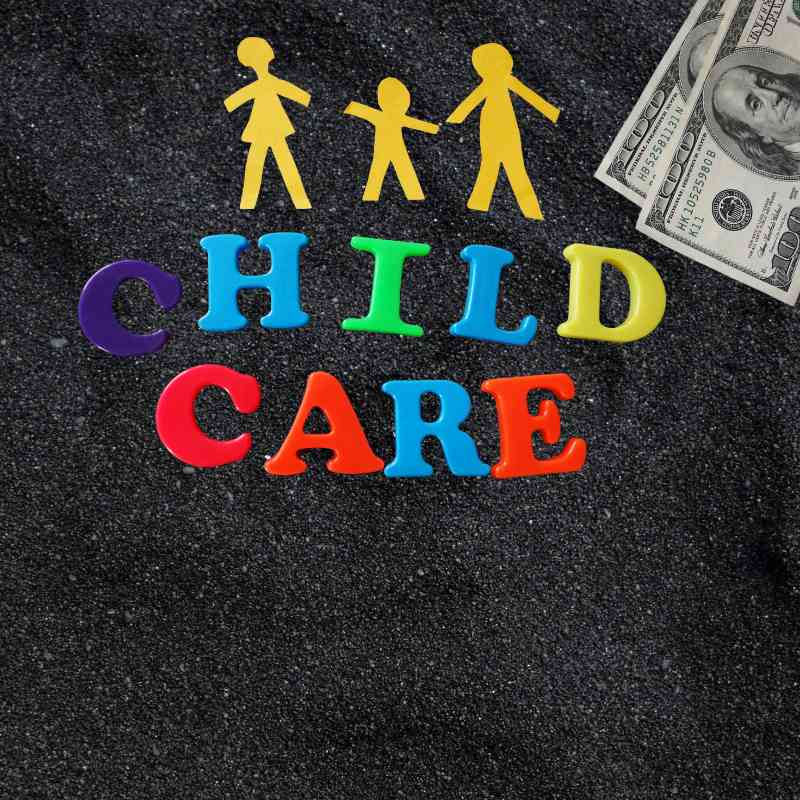
Child custody and maintenance in Muslim family law are governed by principles that prioritize the well-being and welfare of the child. In the event of divorce or separation, the mother generally has the right to custody of young children, while the father remains responsible for their financial maintenance, including food, clothing, education, and healthcare.





Top 5 Ways to Prevent Copyright Violations in Your Content
Feel free to get in touch with us, and our team will respond promptly to assist you with your needs.
Counseling Relationships in the Maintenance of Child involve the professional support provided to parents or guardians to navigate the emotional and legal aspects of child maintenance. Counselors help individuals understand their responsibilities, mediate disputes, and encourage cooperative decision-making to ensure the child’s financial needs are met. The goal is to foster healthy communication, support emotional well-being, and prioritize the child’s best interests throughout the maintenance process.
In Child Custody in Muslim Law, the mother typically has the right to custody of young children, especially during the early years of life, from infancy up to around 7 years old. This right is based on the child’s need for maternal care, both emotionally and physically. The mother’s role is often prioritized in counseling relationships due to her unique ability to provide essential nurturing and psychological support during these formative years, ensuring the child’s emotional and physical well-being.
In Child Custody in Muslim Law, custody decisions are guided by the principle of ensuring the best interests of the child (Maslaha), which considers the emotional, educational, and physical needs of the child. In counseling relationships, the focus is on understanding how both parents can meet these needs. While the mother is typically favored during the early years, the father’s ability to provide for the child’s future well-being, education, and safety is also considered.
If there are concerns that the father cannot provide a safe and nurturing environment, his right to custody may be contested. In such cases, courts often intervene to ensure that the child’s needs are prioritized over parental rights, with counseling relationships helping both parents navigate these sensitive matters.
In counseling relationships related to Child Custody in Muslim Law, even if one parent is granted custody, the non-custodial parent has the right to visitation and access to maintain a relationship with the child. Islam emphasizes that both parents should play an active role in the child’s upbringing, and maintaining contact with the non-custodial parent is crucial for the child’s emotional and developmental growth. Counseling relationships help facilitate communication and cooperation between parents to ensure that these visitation rights are respected and that the child’s best interests are upheld.
Nafqah, or maintenance, refers to the financial support that one parent, typically the father, is obligated to provide for the child. This includes the cost of food, clothing, education, healthcare, and other basic needs.
Under Islamic law, the father is primarily responsible for providing nafqah for his children, even if the parents are separated. This duty extends until the child reaches adulthood or becomes financially independent. If the child is still dependent on the father for education or other basic needs, the father’s obligation continues.
The amount of nafqah to be provided is determined by the father’s financial capacity and the needs of the child. Islamic law takes into account the father’s financial situation but does not require him to spend beyond his means. The needs of the child are assessed in relation to the standard of living and the social status of the family.
If a mother is responsible for the child’s care and is unable to provide for the child financially, the father is still obliged to fulfill his nafqah duties.
Nafqah can be modified over time based on changing circumstances. For instance, if the child’s needs increase due to health issues, education costs, or other factors, the maintenance amount can be adjusted accordingly. Similarly, if the father’s financial situation changes, a reduction in nafqah may be requested, but only after a thorough assessment.
In Islamic family law, both parents have equal responsibility for the care and upbringing of the child. The mother is primarily responsible for the child’s early upbringing, while the father is expected to provide financial and material support.
Custody and Maintenance of Child obligations are separate: Even if the father has custody, he is still required to financially support the child. Similarly, if the mother has custody, the father must continue to pay Maintenance of Child, unless the child reaches adulthood.
Disputes over custody and Maintenance of Child can arise, particularly during divorce or separation. In such cases, Islamic law encourages reconciliation and negotiation between the parents, but if they cannot reach an agreement, the matter is taken to court for resolution.
Courts may appoint a guardian (wali) to make decisions in the child’s best interest if both parents are incapable of reaching an agreement.
As children grow older, their preferences may be taken into account regarding custody. While Islamic law usually favors the father for older children, their wishes are often considered, especially if the child is old enough to express a preference. The emotional needs of the child, such as maintaining strong relationships with both parents, are also prioritized.
In addition to the Maintenance of Child, Islamic law also outlines the mother’s right to maintenance during the child’s custody period if she is unable to financially support herself. This ensures that the mother can properly care for the child during the custody period.
Furthermore Maintenance of Child and custody of child under Muslim family laws Ordinance, 1961 are designed to balance the rights of parents with the best interests of the child. Both parents have clear, well-defined roles in ensuring the child’s emotional, educational, and material needs are met.
In child maintenance counseling, empathy is essential for supporting parents through emotionally charged situations like divorce or custody disputes. We create a safe space where parents can openly discuss their feelings and challenges while understanding their financial responsibilities toward their child. By empathizing with both parties, we help foster cooperation, fairness, and a focus on the child’s best interests.
Empathy allows us to guide parents through difficult decisions, offering emotional support when financial concerns arise and ensuring that the child’s well-being remains the top priority. We help parents understand their obligations with compassion, working together to create fair, practical solutions that support the child’s future.
Legal Consultation and Guidance: We provide expert legal advice on securing Maintenance of Child under Guardians and Wards Act, 1890, helping you understand parental obligations based on the child’s needs, age, health, and education.
Filing of Suit for Maintenance: We assist custodial parents in drafting and filing petitions in Family Court to secure maintenance, presenting evidence related to the child’s needs and parents’ financial situations.
Court Representation: Our legal team represents you in Family or Guardian Court, working to secure a fair maintenance order that considers both the child’s well-being and the non-custodial parent’s financial capacity.
Enforcement of Maintenance Orders: We provide services to enforce maintenance orders, ensuring compliance through legal actions such as salary attachment or asset seizure.
Modification of Maintenance Orders: We assist in modifying existing maintenance orders due to changes in income, the child’s needs, or parental circumstances, ensuring ongoing support as required.
International Child Maintenance Support: For cases where one parent lives abroad, we facilitate the enforcement of maintenance orders through international treaties like the Hague Convention.
Dispute Resolution: We offer mediation and negotiation services to resolve child maintenance disputes, and provide full legal support if court action is required.
Our mission is to ensure every child in Pakistan receives the maintenance they deserve for a prosperous future. We are here to guide you through every step of the legal process.